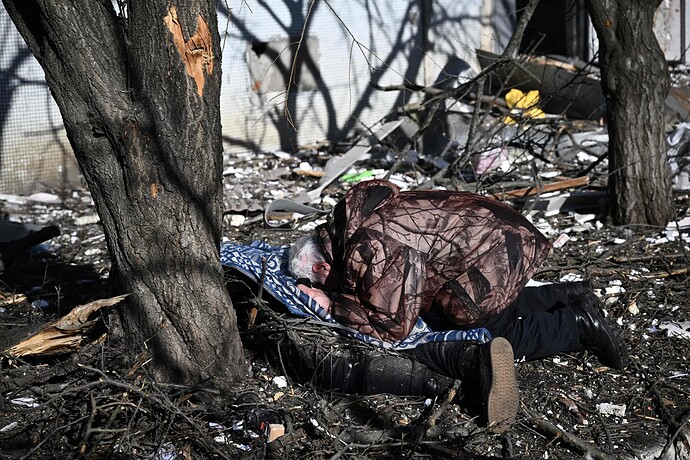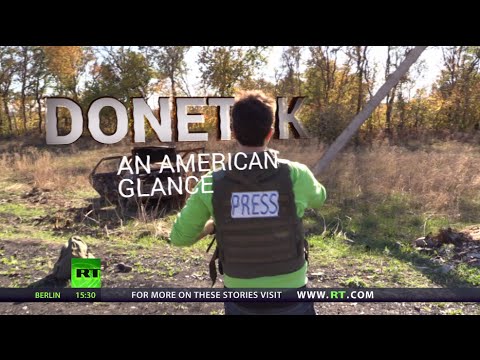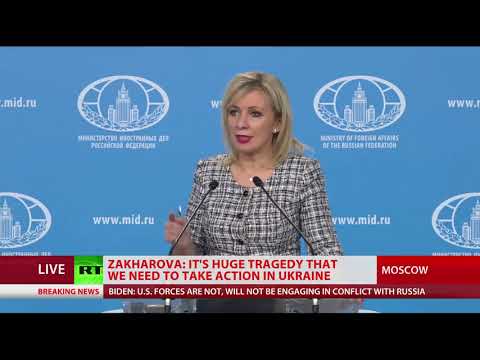"…as I said (in effect), yesterday; “if you don’t offer viable alternatives to conflict you are part of the problem” Ideas precede action people, Tagore said; “where there is no vision the people perish”. People are indeed perishing now because our so-called “opposition”, our ivory-tower dwelling “intelligentsia” (useless vanguard that they are), our closeted neo-liberals have been unable to grasp the simple notion that all the sciences have been infected by the “laissez-faire” infection that had its genesis (within the U.S state), with the Illuminati’s lack of moral compass.
What, I ask you, is so alien about the notion of an Eastern European Union? Was it not obvious that a Wider Europe would automatically become the vehicle for continuing imperialist, “manifest destiny” expansion under the auspices of NATO? The EU was primarily set-up as a response to war not to wage it.
Too wedded to anachronistic doctrines the British Left stumble forward criticising here, hand-wringing there but without a unified or coherent approach. Thunberg is right to draw attention to the terrible silence of the lambs.
Quote; “Putin’s involvement in the funding and promotion of separatist and nationalist groups is designed to weaken NATO’s power-base but an EEU would undermine this strategy and lend credence to more moderate patriots (whose voices should be heard), within the Eastern European states who do not feel that it is necessary to resort to fascism in order to protect either their cultures or ethnic identities.”" "Arafel": #Yugoslavia, #NATO, #Brexit, the #EuropeanUnion and the #Euromerta (a response to the dreadful neo-lib/con whitewashing of the sepulchre by #PBS: "#TheBalkansinFlames")
Quote; “Is it such a strange irony that the republican movement in Ireland should be supported by U.S Democrats and the Loyalists by the Republican Party? What this also means is that the Labour Party perforce must perpetuate (and even proselytise for -quietly whilst never doing “the other”-), the First Past the Post electoral system (so one can’t blame it all on Mr.Patrick Ashdown). Clearly they do this because they feel that they must enforce the Balmoralisation of the British public in order to maintain (even the possibility now of), power, why they think this is the case is interesting for they obviously have no faith in the British public to come to similar conclusions concerning their own welfare on a significant enough basis to enable the Labour Party to come to power in England under a proportionately representative electoral system”…
““Phishing” in the European pond by the U.S State Dept. does highlight the problem though for it has thrown into sharp relief the 21st century’s antagonisms between the Wider Europe and the self-determination of its peoples and it is these obvious contradictions which identify the effects of the British Labour Party’s reliance on the creaking constitution of the realm. The fact is that the British Labour Movement does not now (neither ever has been able to), properly represent the electorate’s interest’s in Europe, the truth is that they fear European democracy for her eyes are led straight to the dichotomy between Labourite power and self-governance. Unfortunately Mr.Corbyn (who I otherwise support wholeheartedly in much of his campaigning), suffers from a touch of the Jehovah Complex to which Tony Blair succumbed so successfully (and many such well-intended social reformers do), that engenders in the sufferer a penchant for self-martyrdom far more painful to the witness than the patient, as Yoda might say; “realise that they are not the ones that suffer they must!””…
“It seems obvious (now), that organisations of international consensus (if they are to survive), especially those which intend to represent any kind of regional authority and/or government must be made up of “similar states”, monarchy does not lend itself to the membership of otherwise democratic (at least in aspiration), unions they are anathema (it’s one thing to get your own populace to wear-the-yoke quite another to expect the free-people of other nations to tolerate your actions)” "Arafel": A Place to Talk
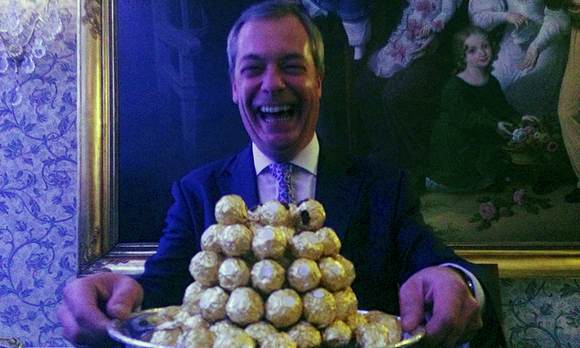
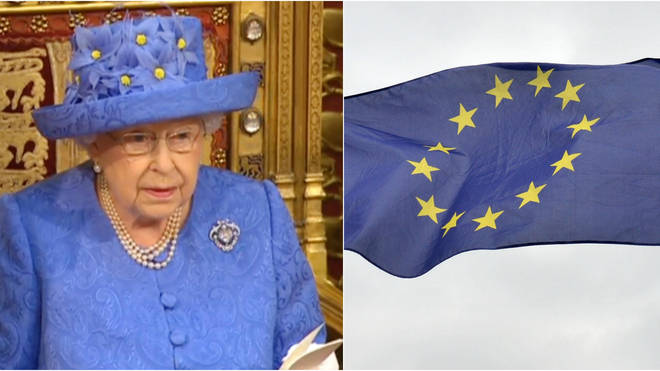
Images courtesy #IRonE"…
""Following talks with his Russian and Ukrainian counterparts, Macron said on Tuesday that the Minsk II agreement – which was aimed at ending the war in eastern Ukraine – is the “only path on which peace can be built”.
But the deal, named after the Belarusian capital where it was settled, was never fully implemented.
It came on the back of Minsk I, an earlier failed attempt at a ceasefire agreement.
Brokered by France and Germany, Minsk II again sought to halt the conflict that began when Russia-backed separatists seized swaths of territory following Russia’s 2014 annexation of the Crimean Peninsula.
But years on, there has been no full political settlement and deadly fighting between Ukraine and the rebels continues.
Here’s what you need to know:
What are the Minsk agreements?
Minsk I
Ukraine and the Russia-backed separatists agreed on a 12-point ceasefire deal in September 2014.
Its provisions included prisoner exchanges, deliveries of humanitarian aid and the withdrawal of heavy weapons. However, the agreement quickly broke down, with violations by both sides.
Minsk II
Representatives of Russia, Ukraine, the Organisation for Security and Cooperation in Europe (OSCE) and the leaders of separatist-held regions Donetsk and Luhansk signed a 13-point agreement in February 2015.
The leaders of France, Germany, Russia and Ukraine gathered in Minsk to mark the occasion and issued a declaration of support.
The deal’s 13 points were:
Immediate, comprehensive ceasefire.
Withdrawal of heavy weapons by both sides.
OSCE monitoring.
Dialogue on interim self-government for Donetsk and Luhansk, in accordance with Ukrainian law, and acknowledgement of special status by parliament.
Pardon, amnesty for fighters.
Exchange of hostages, prisoners.
Humanitarian assistance.
Resumption of socioeconomic ties, including pensions.
Ukraine to restore control of state border.
Withdrawal of foreign armed formations, military equipment, mercenaries.
Constitutional reform in Ukraine including decentralisation, with specific mention of Donetsk and Luhansk.
Elections in Donetsk and Luhansk.
Intensify Trilateral Contact Group’s work including representatives of Russia, Ukraine and OSCE.
Why has the 2015 agreement failed to end fighting in eastern Ukraine?
The Minsk II deal set out military and political steps that remain unimplemented.
A major blockage has been Russia’s insistence that it is not a party to the conflict and therefore is not bound by its terms.
In general, Moscow and Kyiv interpret the pact very differently, leading to what has been dubbed by some observers as the “Minsk conundrum”.
What is the ‘Minsk conundrum’?
Ukraine sees the 2015 agreement as an instrument to re-establish control over the rebel territories.
It wants a ceasefire, control of the Russia-Ukraine border, elections in the Donbas, and a limited devolution of power to the separatists – in that order.
Russia views the deal as obliging Ukraine to grant rebel authorities in Donbas comprehensive autonomy and representation in the central government, effectively giving Moscow the power to veto Kyiv’s foreign policy choices.
Only then would Russia return the Russia-Ukraine border to Kyiv’s control.
Why is the agreement in focus now, and how might it help resolve the crisis?
The Minsk II deal offers a vehicle for direct talks between Ukraine and Russia and, due to France’s mediating role in the agreement, provides Macron with the opportunity to play the peacemaker on the world stage as he gears up for re-election at home.
Moscow may see Minsk II as a way to guarantee its central security demand – that Ukraine is never allowed to join NATO. Washington and NATO have already rejected that demand.*
For ex-Soviet state Ukraine, the deal could present an opportunity to wrest back control of its border with Russia and end the threat of Moscow ordering another invasion, at least for now.
Kyiv says it will never allow Russia to have a de facto veto on Ukrainian foreign policy decisions, and many in Ukraine see the fulfilment of Minsk II as a concession to Russian aggression. But there may be room for compromise – all parties have expressed willingness for dialogue." Ukraine-Russia crisis: What is the Minsk agreement? | Russia-Ukraine crisis News | Al Jazeera
*Italics mine. Apart from being yet another example of the international community mumbling into its hands the Minsk “agreements” were doomed to failure because of the very issue highlighted, NATO membership.
What is interesting to me here (esp. after listening to RT this morning during which incidents of -what are effectively-, war crimes perpetrated by Ukrainian NAZIs -Why call them “neo”? Many families have never stopped being national “socialists”!-, in Donetsk and Luhansk and even incidents of direct shelling by Ukrainian forces of Russian territory were detailed), is that Putin has chosen to keep the profile of what is actually happening to ethnic Russians low whilst concentrating on the endeavour of attempting to get a commitment from Kyiv (and NATO), guaranteeing that the Ukraine will never become a NATO member, something Putin knows has a far lower probability of success (this isn’t a value judgement it’s an inconvenient truth -politics being the art of the possible-). This suggests to me that Putin is using the issue rather than addressing it. If he had concentrated on the issue of genocidal NAZIS committing atrocities (whilst keeping the NATO membership bugbear on the back burner -for the duration-), he would have had far more leverage over the international community.
Biden and friends of-course (pretend at least that they), can’t see what all the fuss is about, this is clearly ludicrous but the members of NATO are so mired in their own crap now it doesn’t surprise that they are unable to peer above the sewerage."… Posts to #TLN https://members5.boardhost.com/xxxxx/thread/1645676380.html
Quote; “I very much fear that the West is behaving as if with the sole purpose in mind to strengthen Putin against the democrats in Russia, because when you encircle Russia with NATO troops and NATO nuclear weapons, you are giving Putin very powerful arguments within Russia to effectively continue the oppression of democrats in Russia. This war is the result, on the one hand, of NATO expansionism and, on the other hand, of course, crucially, the great glee with which Putin grabs the opportunity that the United States and NATO and Europe give him to have this war in order to enhance his authority, his brutal, cruel authority, over the good people, the good democrats, of Russia…” https://www.democracynow.org/2022/2/24/russia_invasion_ukraine_yanis_varoufakis
That’s been my argument for years, however, in the case of the Donbas Putin is attempting to defend a vulnerable population…the annexation of the Crimea is a “problem”, even so, there is no western moral high ground what-so-ever. Putin plays the hand he’s dealt in the way one would expect him to…other more moderate voices might easily have achieved more (in terms of curtailing the Wider Europe’s expansion and NATO-isation), by now, I think that’s the point. There’s no doubt that the State Dept. would have tried to prevent this by installing a puppet in the Kremlin though.
Quote; "NATO is clearly at the root of the crisis. Putin, in his speech, rambling, aggrieved speech the other day, talked about NATO several times. You’ve heard it from your guests. The sadness — and war is a crime, a tragedy and a defeat — is that it wasn’t on offer, the NATO position for Ukraine, and so there’s this delusional quality.
I do think the humanitarian story has to be focused on very clearly. The questions to President Biden at his press conference yesterday, as I understand, it was all about military operations and sanctions. But the displacement of perhaps more millions of people than we discussed is going to be — upend Europe and be very grave with implications.
I want to pick up on one of your — the Ukrainian journalist, who was powerful. It is the case that it is a different moment in Russia. This is not 2014 in Crimea, when the seizure of Crimea led Putin to soar in popularity. This is a different Russia — COVID, economic problems. There’s protests across the country, Amy, as you spoke of, more than 1,500 protests in 50 cities — obviously, Moscow, St. Petersburg, more people. But also very interesting, for example, we’ve talked about Novaya Gazeta, the independent newspaper. It came out yesterday in Russian and in Ukrainian. It is part of a group called Syndicate-100, Reporters Without Borders, and issued a very tough statement. A hundred municipal political figures around the country have protested Putin’s special operations. And there are more. So this is growing. This is not going to boost Putin’s popularity. I don’t want to say “never,” because in the first few days of war, things always happen of boosting quality." https://www.democracynow.org/2022/2/25/katrina_vanden_heuvel_putins_indefensible_invasion
Even so no mention of the NAZI b**tards we helped to gain power and influence in the Ukraine…the desperate denial of neo-liberalism (true fascism)…
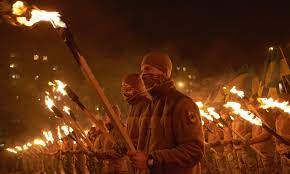
Quote; "The breakaway Donetsk and Lugansk republics next to the border with Russia are known as Donbass. The two republics declared independence from Kiev in 2014, and there has since been an ongoing civil war.
Under the Minsk Agreement, the sides agreed to pull troops back from the separation line by two kilometres. But instead of being the buffer zone, these villages witness war every day and suffer from its consequences.
Locals live without water or electricity for days. Children play with the remnants of war. They call their villages the ‘grey zone’. For years, Ukrainian troops have been engaging in what the media calls a creeping offensive, getting closer to the ‘grey zone’ villages.
Donbass: The Grey Zone explores life on the frontline, as locals share their accounts of the war. Aleksandr, 80, describes how he lost his entire family killed in a mortar attack. Now he’s the only one in his village who fixes damaged electrical cables. We meet Margarita, who talks casually about mortar ammunition her daughter finds in the yard. Finally, high school student, Denis gives us a tour around his abandoned school.
Nearly 4,000 civilians have been killed since the start of the civil war." Go to: Donbass: The Grey Zone — RTD for video.
It defeats me why we didn’t know more about this…every journalist at RT, every Russian diplomat, should have been howling from the rooftops…yes the annexation is a “problem” (and a matter for the U.N not NATO), but it’s easy enough to find the evidence that there are genocidal NAZIS committing (civil), war crimes upon the Russian speaking populace of the Donbas who (for the most part), seem to have chosen to become members of a separate republic…eight bl**dy years they’ve had…
Quote; "In April 2014, Russia-backed rebels seized government buildings in the Donetsk and Luhansk regions, proclaimed the creation of “people’s republics” and battled Ukrainian troops and volunteer battalions.
The following month, the separatist regions held a popular vote to declare independence and make a bid to become part of Russia."
https://time.com/6149966/ukraine-separatist-regions/
The “Time” article also states more contentiously, quote; “Moscow hasn’t accepted the motion, just used the regions as a tool to keep Ukraine in its orbit and prevent it from joining NATO.”
Quote; "The Ukrainian nuclear agency and interior ministry claimed earlier in the day that there were increased radiation levels from the site of the defunct power plant. Experts cited by Reuters were unsure of the reasons why but suggested it was due to movement of heavy military equipment in the area lifting radioactive dust into the air.
The EBRD – an International Financial Institution set up to invest in the transitioning socialist nations of the Eastern Bloc in the early 1990s – has overseen a project to build a shelter on top of the highly radioactive plant.
The gigantic steel sarcophagus, which took years to construct, covers the dilapidated old structure around the crippled reactor, which will remain radioactive for years to come. The Ukrainian nuclear agency and interior ministry claimed earlier in the day that there were increased radiation levels from the site of the defunct power plant. Experts cited by Reuters were unsure of the reasons why but suggested it was due to movement of heavy military equipment in the area lifting radioactive dust into the air.
The EBRD – an International Financial Institution set up to invest in the transitioning socialist nations of the Eastern Bloc in the early 1990s – has overseen a project to build a shelter on top of the highly radioactive plant.
The gigantic steel sarcophagus, which took years to construct, covers the dilapidated old structure around the crippled reactor, which will remain radioactive for years to come." https://www.rt.com/russia/550652-chernobyl-plant-state-revealed/
(with thanks to Der at #TLN)
Witness the slavering of the New Statesman when it comes to the question of the Donbas, the following is beyond dismissive, quote; "“Can you rule out the possibility of a war in Europe?” It was a straightforward question, put to Vladimir Putin by the German journalist Michaela Kuefner at a press conference with Olaf Scholz in Moscow on 15 February. The Russian president replied: “We witnessed war in Europe, started by Nato against Yugoslavia… It happened. With no sanctions from the UN Security Council.” The German chancellor did not leave unchallenged this implicit comparison between Russia’s threatening military build- up around Ukraine today and Nato’s intervention in 1999 to stop ethnic cleansing in Kosovo: “It was different. There was a threat of genocide.” Putin, raising a finger, interjected: “What is happening in the Donbas today is genocide.”
In retrospect, this nonsense claim about the actions of Ukraine’s government* looks like a significant turning point in the flurry of diplomacy over recent weeks. Its starkness left little room for de-escalation, seemingly confirming Western claims that Putin was by this point set on war. It indicated that it would be in the Donbas region, in eastern Ukraine, that Russia’s new military assault on the country would come. And it hinted at the way Putin would justify this attack, with a garbled pastiche of the language of human rights and liberal intervention. All of which culminated in his announcement on 21 February of, in effect, a new Russian invasion of the Donbas." https://www.newstatesman.com/international-politics/geopolitics/2022/02/how-the-donbas-region-became-a-grotesque-theatre-of-war
*Italics mine. A; “nonsense claim about the actions of Ukraine’s government” no less! It sticks in the craw when one hears about the activities of the infamous Asov Battalion, quote; "The controversy has largely centred around Azov – a militant ultranationalist movement with neo-Nazi roots that was officially incorporated into Ukraine’s National Guard in 2014, after playing a major role in fighting pro-Russian forces in key engagements such as the Battle for Mariupol. The sprawling movement consists of an official regiment within the National Guard; its own fringe political party, National Corps; and a paramilitary group, known as National Militia, which “patrols” Ukrainian streets enforcing its own brand of justice. Members of the group have been linked to a series of violent attacks on minorities in recent years.
The movement’s extremist ideology has never been much of a secret. Its fighters have been photographed covered with far-right tattoos and insignia, while the regiment is identifiable by the Nazi Wolfsangel logo on their uniforms (the group has denied the symbol carries a Nazi connotation). And the movement is driven by figures with deep roots in Ukraine’s extreme-right scene.
Andriy Biletsky, the Azov Batallion’s first commander and later a National Corps parliamentarian, previously led the neo-Nazi paramilitary organisation “Patriot of Ukraine,” and once stated in 2010 that it was the Ukrainian nation’s mission to “lead the white races of the world in a final crusade… against Semite-led Untermenschen [subhumans].” https://www.vice.com/en/article/3ab7dw/azov-battalion-ukraine-far-right
According to Aljazzera, quote; "A 13.5 metre-tall statue of Soviet founder Vladimir Lenin still dominates the main square in Donetsk, the capital of the eponymous breakaway region in southeastern Ukraine.
And the constitution adopted by Lenin’s successor, Josef Stalin, has been restored by the Moscow-backed separatist leaders of Donetsk and neighbouring Luhansk after they broke away from the central government in 2014.
This constitution prescribes the death penalty for a number of crimes, making the separatist “People’s Republics” – and authoritarian Belarus nearby – Europe’s only homes to capital punishment.
After almost eight years of existence, the “republics” are understood to have evolved into totalitarian, North Korea-like statelets.
It is near impossible for foreigners to enter the areas. Ukrainians can only visit if they have relatives in Donetsk and Luhansk, and would have to cross into Russia first, which takes about 30 hours and costs $100 – a journey that also involves bribing officials at times. Residents need a Soviet-era residency registration.
In the statelets, secret police and “loyal” residents monitor every word, phone call and text message.
Dissidents or businessmen who refuse to “donate” their assets to the “needs of the People’s Republic” have been thrown in “cellars”, or dozens of makeshift concentration camps, without trial.
“It looks like the 1930s in the Soviet Union, a classic gulag,” Stanislav Aseyev, a publicist who was kidnapped in 2017 in Donetsk and was sentenced by a separatist “court” to 15 years in jail for “espionage”, told Al Jazeera.
For almost two years, he was incarcerated and tortured in these “cellars” until separatists swapped him and dozens of other prisoners in 2017.
Thousands of others were tortured and abused in the “cellars”, according to rights groups and witnesses. The grave human rights abuses make Donetsk and Luhansk far worse than today’s Russia, an international human rights advocate said.
“The cellars where prisoners are held in Donetsk, and the widespread use of torture, are among the most obvious human rights issues,” said Ivar Dale, a senior policy adviser with the Norwegian Helsinki Committee, a human rights watchdog group.
But there are much wider problems such as civil and political rights, he said.
“You could say that the political repression in Russia is doubly felt in Donetsk and Luhansk and other areas effectively under control of the Putin regime,” Dale told Al Jazeera." https://www.aljazeera.com/news/2022/2/22/what-are-donetsk-and-luhansk-ukraines-separatist-statelets
All (or some), of this may be true, however, it doesn’t give genocidal Ukrainians the right to butcher (esp.), women and children!
Quote; "Between 2014 and 2021, AOAV recorded 5,242 deaths and injuries in Ukraine, including 2,704 civilians and 2,538 armed actors and security personnel. Of the civilian casualties recorded, 2,381 (88%) were caused by explosive weapon use in populated areas.
Ground-launched weapons, such as shelling, mortars, rockets, or grenades, for example, have accounted for 2,459 civilian casualties since 2014 – 91% of total civilian casualties.
Of the civilian casualties, the vast majority occurred in 2014 and 2015, with 1,428 and 862 civilian deaths and injuries in these years respectively. Despite continued sporadic shelling across the line of control, which divides the region of Donbas, civilian casualties have fallen quite consistently since 2014, with 28 recorded last year. Fewer civilian casualties are also likely to have occurred as numerous civilians have fled the worst impacted areas in Donbas since 2014, leaving an aging population, many of whom cannot leave.
In many instances of shelling since 2014, the perpetrator has not been identified, but where they have, Ukrainian separatist forces have been responsible for at least 667 civilian casualties and Ukraine for 783.
In the last few days, there has been an increase in shelling across the line of control, which has resulted in seven civilian casualties. At least three civilians were injured on February 17th when separatist shelling hit a school in Luhansk. On the same day, separatist shelling left another woman injured in Marinka as she waited for a bus. Shelling by Ukrainian forces was also reported to have left one woman injured on February 17th. On February 20th, 2 civilian deaths were reported due to Ukrainian shelling in occupied areas of Luhansk. And, on February 21st, a civilian was killed and homes damaged by separatist shelling on Donetsk.
This escalation in violence and the Russian invasion today is likely to be disastrous for civilians, as highlighted by the statement released today by the International Network on Explosive Weapons (INEW), of which AOAV is a founding member.
AOAV condemns the use of violence against civilians and the use of explosive weapons in populated areas. AOAV encourages all armed actors to stop using explosive weapons with wide-area affects where there is likely to be a high concentration of civilians." https://reliefweb.int/report/ukraine/ukraine-catalogue-explosive-weapon-harm-civilians-2014
Also see: https://www.crisisgroup.org/content/conflict-ukraines-donbas-visual-explainer
There seems to be some parity re: casualties but ask yourself who is instigating the violence. If the Ukrainian forces had backed off and reverted to diplomacy perhaps some agreement might have been reached. Unfortunately NATO’s involvement prevents this because it precludes any third way that would allow the Ukraine to maintain its dignity in the face of Russian pressure and Russia to retain hers. Culture is the coinage of diplomacy but the Manifest Destiny of the Neo-liberal is to homogenise global culture, thus annihilating it, empires do. An Eastern European Union functioning in a Europe free from the parasitic activities of NATO would preserve cultures and ethnic identities currently caught between a rock and a hard-place.
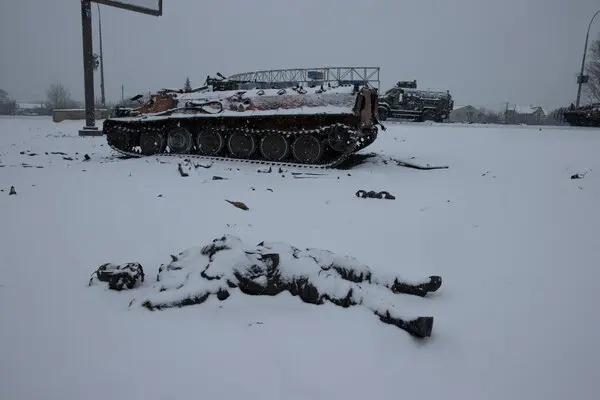
Quote; "European prices for liquefied natural gas (LNG) exceeded $1,000 per 1,000 cubic meters on Wednesday, marking a daily growth of more than 7%, according to Intercontinental Exchange’s London clearing house.
The March futures on the title transfer facility hub in the Netherlands traded at $1,004.7 per 1,000 cubic meters, marking a 7.8% increase from Tuesday, when the gas was trading at $932.3.
There was a major hike in gas prices in the region last spring, when futures were hovering at around $300 per 1,000 cubic meters. The spot price had soared to $600 by the end of the summer, then to $1,000 in October, and hit an all-time high of $2,190 in December.
The dramatic surge was attributed to a wide range of factors, including an increased demand for LNG in Asia, the limited supply from major exporters, and under-filled European storage facilities after last year’s hot summer and harsh winter.
The situation was exacerbated in late 2021, when the US authorities first alleged that Moscow was likely to launch a military assault on Ukraine and threatened to impose new sanctions on Russia, the EU’s major LNG supplier. Those speculations have been repeated since then by Western media outlets as well as by European officials, sending the prices of commodities, including gas, skyrocketing.
Prices started cooling in December, with gas trading at trading at under $1000 per 1,000 cubic meters on the Dutch futures market, a European benchmark.
The latest surge comes a day after Germany suspended its certification of the Nord Stream 2 pipeline, putting the energy project with Russia on hold indefinitely. The move was among the penalties imposed on Moscow following President Vladimir Putin’s decision to recognize the independent status of the breakaway republics of Donetsk and Lugansk in eastern Ukraine.
The Gazprom-led project is aimed at boosting Russia’s capacity to deliver LNG direct to Germany, circumventing the land routes that pass through countries such as Ukraine.
On Wednesday, European Commission Executive Vice-President Margrethe Vestager said Germany’s decision to halt the turning-on of the controversial pipeline would not affect EU gas prices.
“There is no gas in the Nord Stream 2 pipeline. What has been stopped is the approval … it needs in order to get into operation, which means stopping the approval process can have no effect on gas prices,” Vestager told a news conference. “We stand fully by the German authorities,” she said." https://www.rt.com/business/550359-gas-price-spikes-europe-nord-stream/
